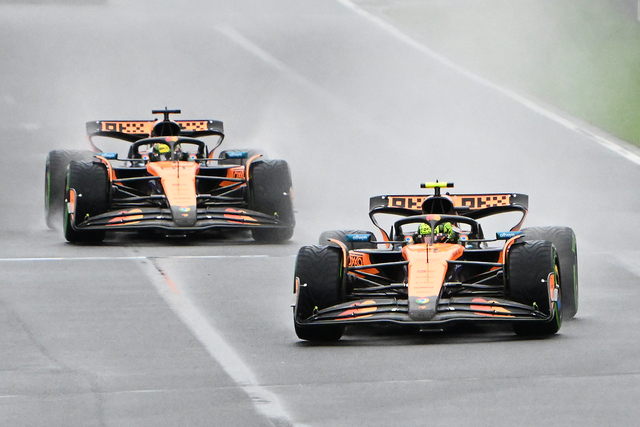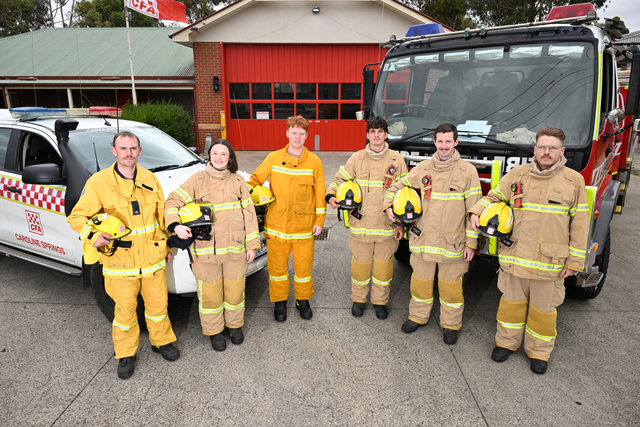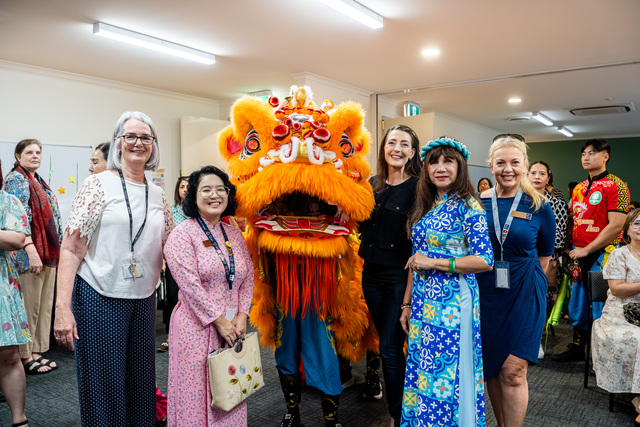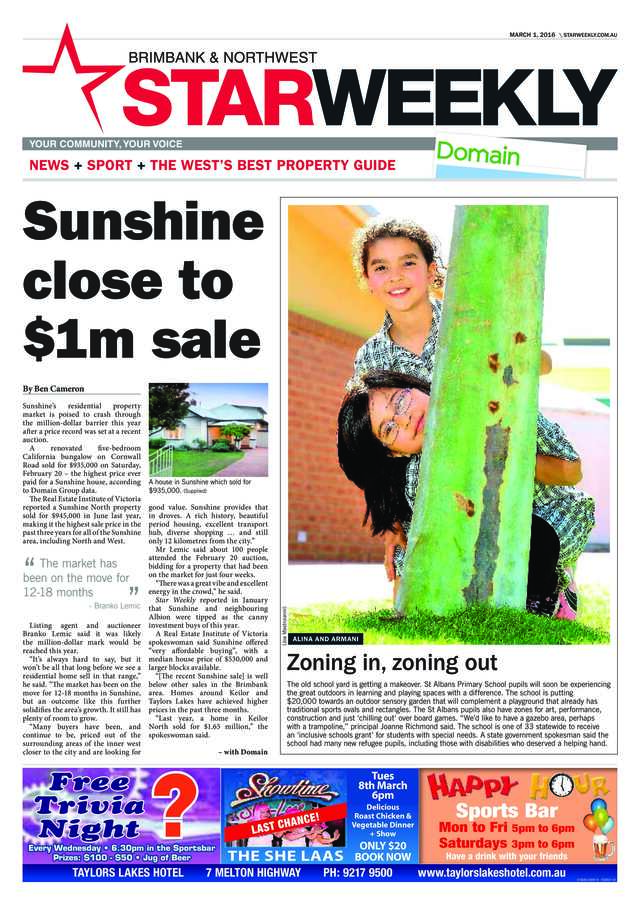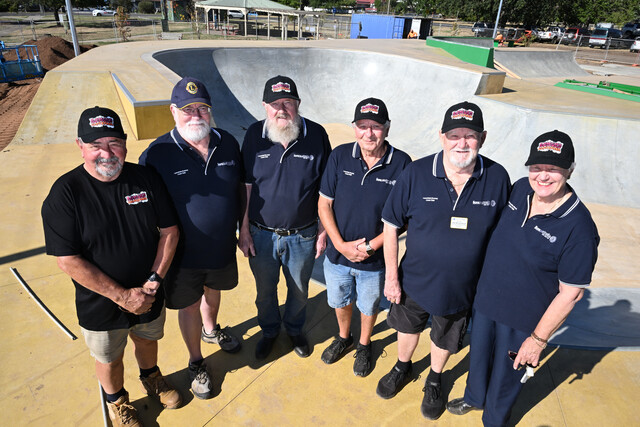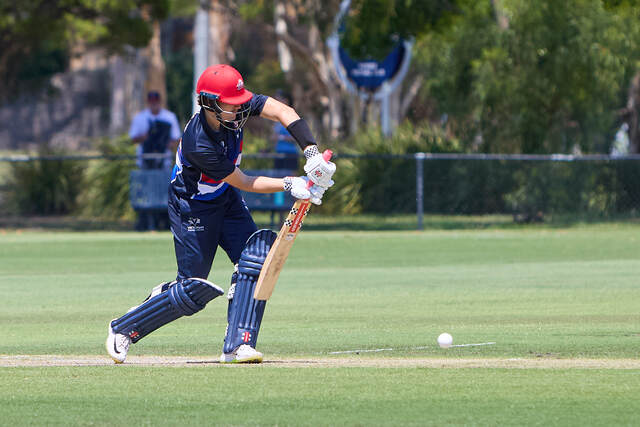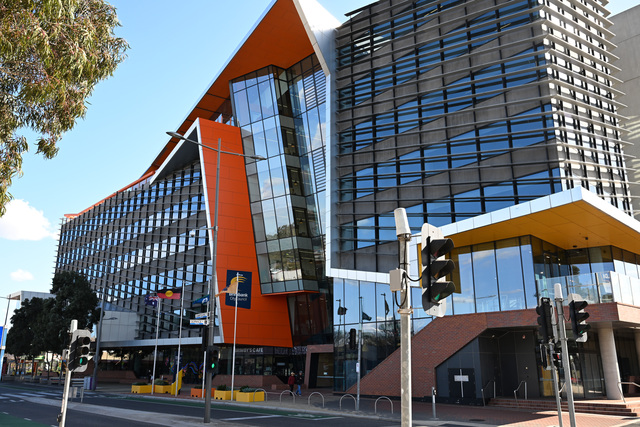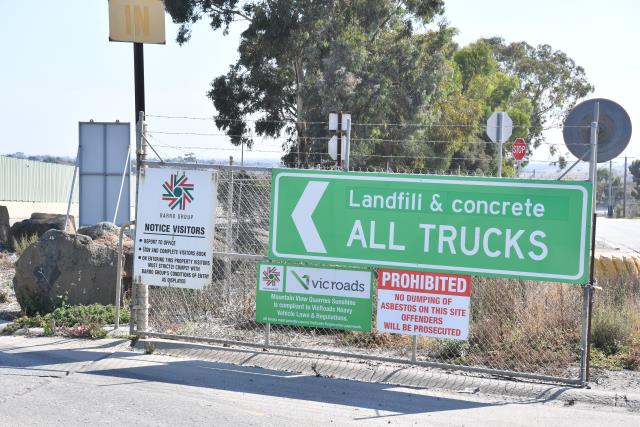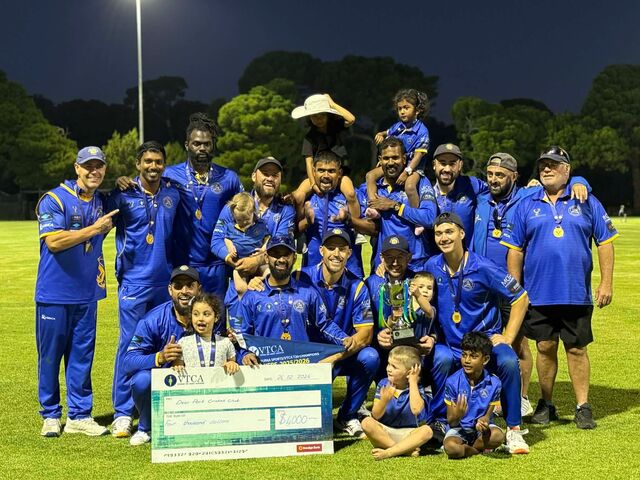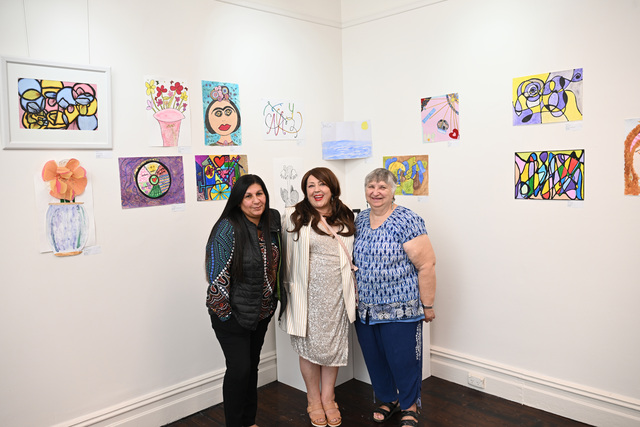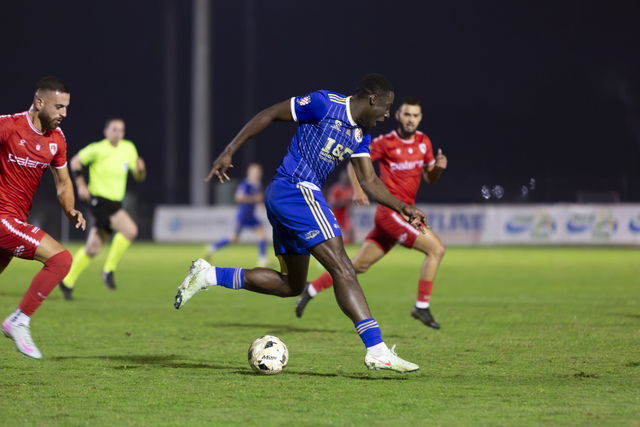If there weren’t so many other visual treats at the extraordinary historic home and garden of Kate Durham and Julian Burnside – Reg Mombassa paintings, murals, sculptures – you could spend a long time around their books on language, art, politics, writing. This is a house whose occupants clearly connect with the world of culture and ideas.
Kate Durham, 57, walks me around. Outside there are industrial-sized sculptures, little water features, a tiny wooden bridge (which Durham painted) over a tiny pond. There’s a real secret garden feel. Today she points out a tawny frogmouth sitting in the peppercorn tree.
Durham is an artist, known mainly for her jewellery. Right at the back is a large studio where she works, and the “gatehouse” where her mother lived for three years (she died two years ago of cancer, aged 87). But it is Durham’s role as an advocate for refugees that has taken up much of her time over the past 13 years, since the 2001 Tampa incident, which scandalised her into action.
With Burnside, a noted Melbourne Queen’s Counsel, she has opened her home to asylum seekers and launched Spare Rooms for Refugees, which has helped more than 100 people find accommodation. The couple also set up Spare Lawyers for Refugees, a network of lawyers providing help for asylum seekers free of charge.
“I thought, ‘If they’re accusing Muslims of being terrorists, the best way to solve the problem is to show them you’re prepared to have them in your house and that you’re not afraid of them’,” Durham says.
The first person to move in with Burnside and Durham was Uighur woman Nurghal, a refugee from north-west China who stayed with them for nine months and met the love of her life here.
The next was Rahmat, a Hazara Afghan, who lived with them for six years and was later joined by his wife and 14-year-old brother Juma. After six years, Rahmat moved into a house Burnside and Durham owned around the corner, living there for another two and a half years. “It was fun, it was like a village,” Durham says. “They’ve now bought a house near Dandenong.”
Nine years ago Mosa, then aged 11, arrived from Afghanistan. Durham describes him as her “foster son”, although she has not formally adopted him. “He thinks I’m his mum. He doesn’t say, ‘mum’ but he regards us as his parents.
“He’s a relative of Rahmat, he had some problem with his family,” she says. “He loved coming here. I just thought, ‘This is appropriate that he is here’. His parents left their farm in Afghanistan and are in Pakistan now. We help where we can there.”
Mosa is at university in Ballarat, studying paramedics and nursing, and living in residence. He returns to Hawthorn every weekend. “He’s got the same interests as any 20-year-old – cars, girls, music,” she says.
“He’s really handsome – that’s a good thing for him, so he gets away with a lot. Like most Afghans I know, he is not particularly religious but the culture strain is very strong. People are incredible how adaptable they can be.”
Durham and Burnside are also hosting Ali, in his 30s, who spent five years in detention on Nauru before moving into their gatehouse two-and-a-half years ago. “He was pretty shattered by being on Nauru as long as that, so he gets down, I would say.”
An only child, Durham was “mostly” brought up by her mother. “She and I were incredibly close. Every day I miss her badly. She was still very vibrantly involved, she was politically involved, she was funny, very creative, wrote books on movement.”
Durham had an uneasy relationship with her father, a psychiatrist, and with the man her mother married in the late 1960s, a scientist with whom Durham got on “explosively”.
After her mother remarried, the family moved to Mt Eliza, which Durham hated. “I still loathe tea tree. My mother kept promising that she would leave my stepfather and we would get out of there. I was naughty and because I wasn’t getting on with my stepfather, they made me board. It was a terrible teenage time.
“I felt worried for my mother. I think I took it out with my behaviour at school. I was a clown at school. I was naughty, very rebellious. As a child I had a slightly obsessive quality. I was always drawing. From the age of nine I knew I wanted to be an artist, nothing else.”
At nine, Durham moved to London for a year, ostensibly to reconnect with her biological father. “He was supposed to look after me on school holidays because I was at boarding school, but he didn’t. He would just pick me up and dump me at [the celebrated Australian artist] Colin Lanceley’s house in Regent’s Park in London. I stayed there for a week.
“[At Lanceley’s] I thought, ‘Oh my God, this is perfect, this is what I’ll be, I’ll be an artist’.”
Durham studied fine art at Monash before going on to a post-graduate degree at the Victorian College of the Arts. She painted, but later began to make jewellery, eventually selling around Australia and to agents in the US and London.
At an election party in 1996 – the night John Howard defeated Paul Keating – her life changed when she met Julian Burnside. “He invited me – within five minutes – to a concert,” she says. “And I thought, ‘You’re supposed to do that at the end of the party’. I thought, ‘Yeah, I’m open to a concert’. He would ring quite a bit. He wasn’t my kind, I thought.”
Durham was about to move to Sydney. “I told my mother, ‘This guy’s buzzing round, mum, I don’t know what to make of it’ … I said, ‘He’s a QC’ and she laughed. She said, ‘Grow up, darling, get on with it, get off to Sydney, get on with your job. He’s the last thing you need.’ Eventually she met Burnside and she was won over. He was very charming.” They married in 1998.
After Tampa in 2001, the couple felt compelled to do more for refugees. Durham travelled to Nauru in 2002 as a researcher for a BBC program called Pacific Solution, which was screened worldwide.
“I felt like I was in a crisis. I felt it was up to me in some way to fix this problem, that this was a minor glitch, that Australians were fabulous people and this wouldn’t go on. But it did. And it’s worse than ever.”
She says she felt “a kind of grief”. “My mother and I were so obsessed with Nauru, we’d send parcels every Thursday. We’d lay out all our stuff and write to hundreds of people there. We would send cameras hidden in shoeboxes, bolts of fabric, toys, dictionaries, English books.”
Opening her house to those who needed help became an intense personal journey. Durham has no children of her own. “I didn’t want a child. I’d actually ruled out any idea of parenting because I thought I would always be very poor, because I’m an artist. And I never wanted to be as vulnerable as my mother had been, to being left.
“When I was a child she was on two-thirds the salary of a man, couldn’t take out a bank loan. And I honestly believe she wouldn’t have married my stepfather had he not emphasised how responsible he’d be, how he’d take care of me. I always felt she made this terrible sacrifice for me and I didn’t want to do the same thing. So I suppressed any interest in children, really,’’ she says.
“Mosa coming along was kind of a curious experiment, really. And a very good one. I’m just lucky that he’s good-natured. And I’m also lucky that he’s not particularly religious because we’re not … But I’d put up with it. I encouraged him to go to the mosque if he wanted, but he didn’t.”
She and Burnside are united in making real the ideal of the privileged giving something back. They have similarities: “What we had in common was an interest in the arts.” And differences: “I’d never encountered people who’d voted Liberal. It was six years into our marriage and he said, ‘I’ve never really told Kate that I’ve voted Liberal all my life’. I was absolutely stunned. I wouldn’t have gone out with him again. And he knew …
“Politics has never interested him. But his sense of human rights was always there.”
Did she start Spare Rooms for Refugees with a sense of knowing she was wealthy and had a big house she could share? “That’s precisely where it came from. We’d just finished a renovation here. The minute I married Burnside I felt kind of self-conscious. I suddenly had a new identity. I was happily illustrating, hopeless with money … I felt overwhelmingly guilty suddenly.
“We haven’t got super wealth or anything, but I felt self-conscious. Suddenly this thing the rich have known for centuries – noblesse oblige – kicks in and you do feel, ‘Well, this is fine, but I am not going to ignore what’s going on … and I’ve got to be much more involved’. I’m not worried about my survival so I’ve got more time to pay attention to these other things.
“The strange thing was that during this process I kind of lost quite a lot of friends because, without knowing it, I’d been making them feel guilty and they didn’t like it. That resonates with Australia generally – that the more you’re a do-gooder, the more you’re embarrassing other people and making them feel as though they’re not doing their bit.
“The great thing about having money was I didn’t have to raise money. I didn’t have to ask for anyone’s permission.”
» Kate Durham and Julian Burnside are seeking volunteers to help with a letter-writing campaign for detainees.
» Visit: An exhibition of Kate Durham’s jewellery will be held at Fortyfivedownstairs in Flinders Lane in September.





